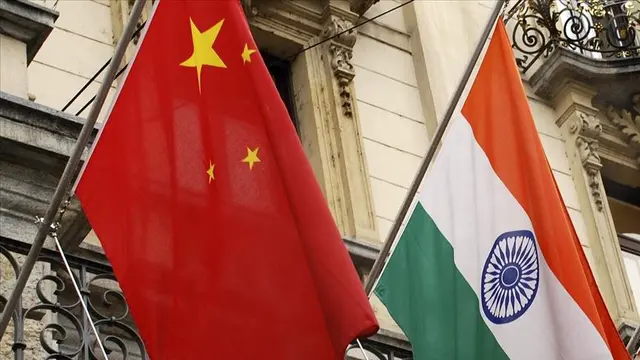By APD writer Imdad Hussain
Amid the border tension between India and China Russian role has attained great importance, more so, because it has exceptionally good ties with both the countries. India’s relationship with Russia despite some ups and downs in the 1990s has grown stronger over the years - culminating in Special and Privileged Strategic Partnership of 2010.
Indian Defense Minister Rajnath Singh’s recent visit to Moscow at a juncture when two of the biggest armies of the world have locked horns at Himalayan border in Ladakh is also very important as negotiations are under way to defuse the rising tension -- Prime Minister Narendra Modi keen for an early resolution fearing drop in his popularity in case of more losses.
Singh’s participation in the 75th anniversary of the Soviet Union’s victory over Nazi Germany in the Great Patriotic War of 1941-1945, earlier scheduled for May 9 but was postponed on account of rising coronavirus infections in Moscow, is highly significant who went there primarily to seek advanced delivery of the Russian S-400 anti-aircraft missile defense system due in December 2021 and the purchase of Russian-made jet fighters Su-30Mki and MiG-29 -- the deal worth than $5 billion was signed in 2018.
According to Indian media, Rajnath Singh’s visit is being seen as an attempt to boost India’s military capability to put pressure on China by acquiring weapons from Russia though the Indian government has been late in realizing it and now wants to press for an early delivery.
Meanwhile, Russian Foreign Minister Sergei Lavrov hosted the virtual RIC trilateral meeting with China’s Wang Yi and India’s Subrahmanyam Jai Shankar as it has emerged as a key player in softening relations between the two neighbors.
Speaking at the meeting Sergei Lavrov ruled out any intervention in the current standoff between India and China. Maintaining that both countries did not need any help from outside, he expressed confidence that they can solve problems on their own. He added that India and China had shown their commitment to the peaceful resolution of the dispute with meetings taking place at the diplomatic as well as the military level -- expressing hope that the situation would continue to be peaceful.
Given the high goodwill that Russia commands in both New Delhi and Beijing, it would not be surprising if it persuades the two countries to de-escalate the conflict. It is believed that Russia had played some role in resolving the Doklam standoff in 2017 through back-channel diplomacy that had occurred just before the upcoming BRICS Summit in Xiamen, China.
It is, in fact, a test of Russia’s ability to balance its relationships amid growing dependency on China while India represents a key market and an opportunity for Moscow while on the other hand, Beijing’s relationship with the former is perhaps the best since the 1950s -- they stand together on every conflict of global significance- be it Iran, Syria, Afghanistan, Ukraine or North Korea, becoming a formidable force to reckon with in global politics.
Russia may be also be concerned that the conflict may put an end to the growing multilateral cooperation among the BRICS states and push India closer to the US for its defense and security requirements.
Though ironic, a social media group is of the view that Russia may warn and can control China as desired by India, however, some experts brush aside this idea, saying Russia is not in a position to act in this manner as it needs China’s support especially due to its weak economy.
Any US involvement in Sino-India tension could only make the situation worse, therefore, India should tread carefully to avoid being used by Washington as a proxy while Russia is the only power with bona fides and credibility as an honest broker for resolving the India-China conflict.
Russia is expected to play a constructive role, however, if tension between China and India aggravates and turns into a war, it will attain great significance as it is also signatory of Shanghai Cooperation Organization.
(ASIA PACIFIC DAILY)
 简体中文
简体中文

